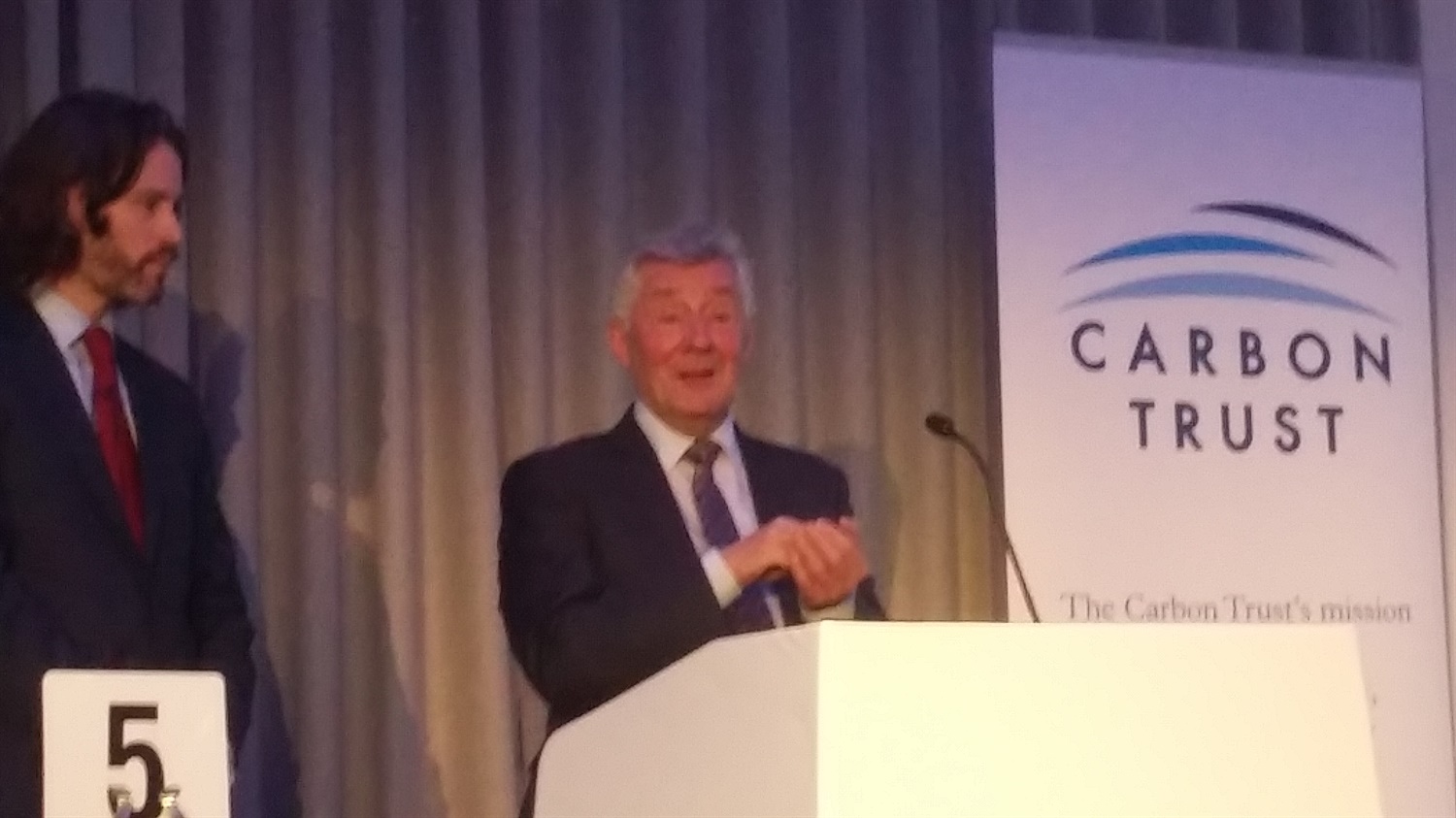21.02.17
GM Mayor: Business as usual won’t work to deliver 2050 carbon targets
Taking a ‘business as usual’ approach will not allow Manchester to hit its 80% carbon reduction targets by 2050, Tony Lloyd, the region’s interim mayor has said today at the Carbon Trust’s Public Sector Conference.
Addressing a jam-packed room of delegates, which featured attendees from more than 200 organisations, Lloyd stated that business as usual with regards to the carbon agenda is “not an option”.
During his keynote, the Police and Crime Commissioner for Greater Manchester (GM) highlighted the region’s work to reduce its carbon footprint, including Smart Systems and Heat, one of three national pilots with the Energy Systems Catapult to deliver energy master-planning; the £20m public buildings efficiency project; work with regards to heat networks; and funding for electric vehicle recharging infrastructure.
However, he admitted that while progress has been made, “much more must be done” to drive the low-carbon agenda locally and nationally.
“If we adopt business as usual processes we will hit our 2020 [low-carbon] ambition, but we won’t get the 80% reduction by 2050 that we’re committed to, and we certainly won’t go further. Business as usual is not an option,” he said.
“We have got to move on with the developments discussed already and scale them up. In that sense, we do need partnership with central government, and that is absolutely right. But we need to look in particular at how we maximise the existing partnerships and strategic approaches and then we can find the pathways to deliver at scale.”

Lloyd added that there must also be work to incentivise low-carbon investment by others through stronger local policies. “This will include difficult decisions on provisions with regards to new buildings,” he stated. “But, in the end, we have to work with central government and the private sector to create investment frameworks that provide the capacity for project development.”
GM’s interim mayor added that one of the biggest problems facing the region is retrofitting buildings: “How can we incentivise people to retrofit their homes, to ensure the technologies that do exist are affordable?” he said, adding that cities are the fundamental link to solve the retrofit issue, because they can apply scale but be “small enough to have delicacy of touch”.
“These are big, big challenges and it is a big agenda,” stated Lloyd. “But politically and technically if we can take it on in GM, we can take it on everywhere in this country.”
Before Lloyd took to the stage, Richard Rugg, managing director of programmes and cities at the Carbon Trust, highlighted the responses to some pre-conference questions. Delegates had been asked what the biggest barrier to adopting low-carbon tech was in their organisation: nearly 40% cited lack of internal ownership, 29% lack of budget and almost a quarter identified sign-off of projects as being an issue.
Asked how GM has taken its work forward to break down these barriers, Lloyd said: “I really do believe that lobbying matters. We also have to be individual witnesses that the agenda matters. You also have to have the information base that can really convince the governance and leadership structures that their decisions can make a difference.”
During the morning session, Prof Jim Skea, RCUK Energy Fellow & Professor of Sustainable Energy at Imperial College London, also gave a high-level overview about the global interest in local action to tackle the low-carbon agenda. He added that the more done at city level, the less we rely on futuristic tech.
Full coverage from the conference, which PSE is the official media partner of, will appear in the upcoming edition.